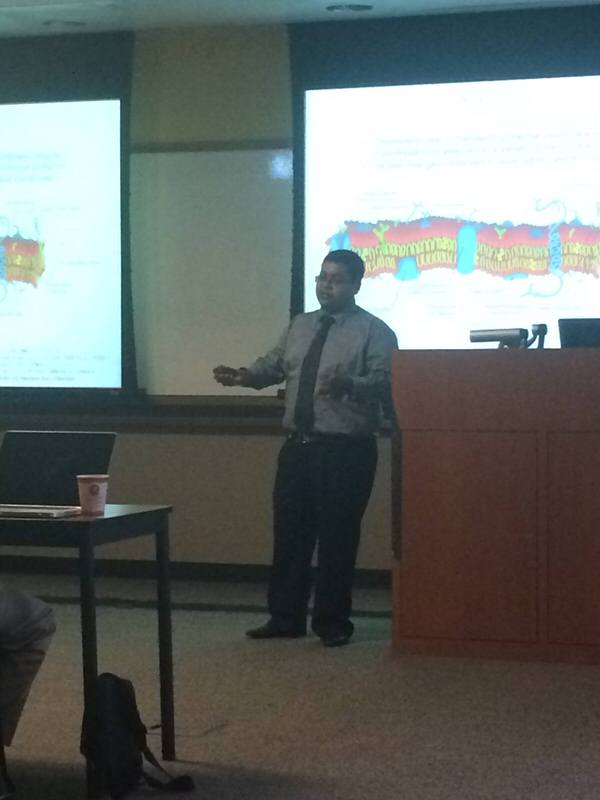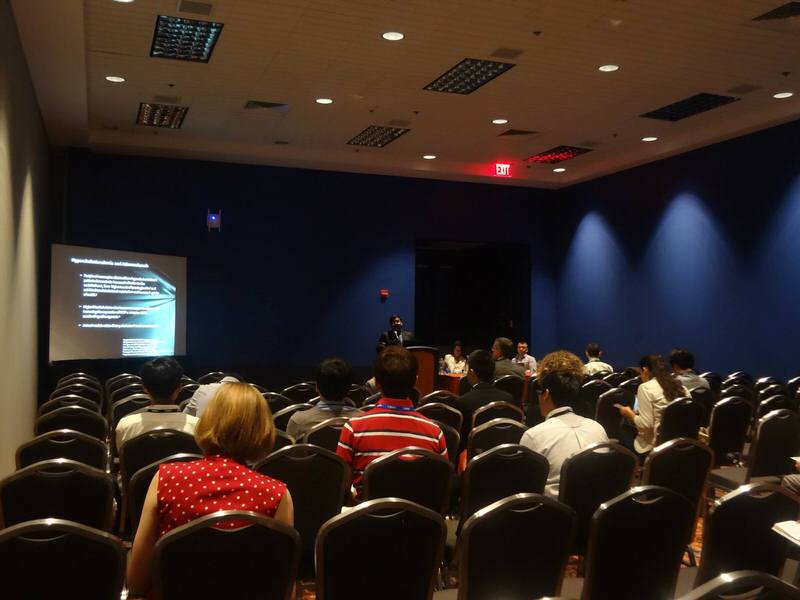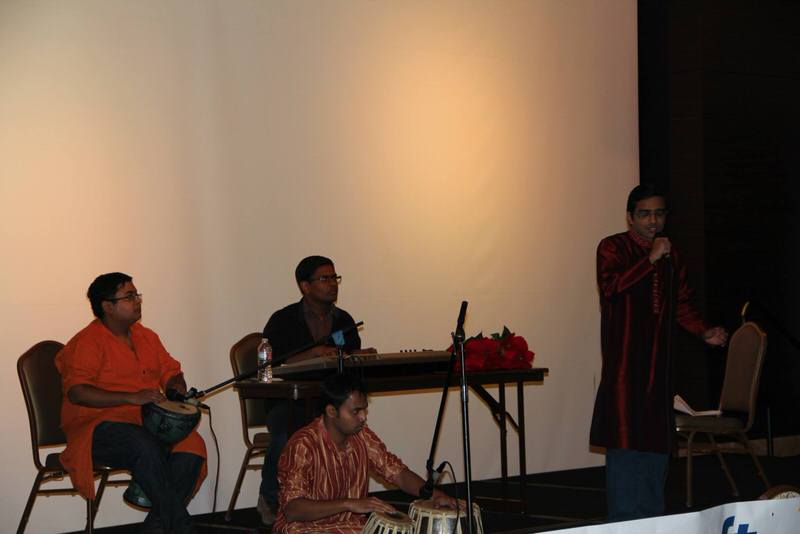Studying Biomechanics at a Single Cell Level
Y our name, program, dissertation
our name, program, dissertation
title.
Amit Kumar Saha, Joint graduate program in Biomedical Engineering between UTSA and UTHSCSA, “Effect of cellular cholesterol on monocyte biophysical response.
Please tell me about yourself, why did you pick UT Health Science Center, and your program.
I did my Bachelor of Technology in Biotechnology (B.Tech) from Heritage Institute of Technology (Kolkata, India).
I had always wanted to gain a better hands-on understanding of research. Technology is a passion for me and I have always strived for practical understanding. Given the exciting advancements in Biomedical Engineering, I decided to pursue my Ph.D. in the same.
Being from a developing nation, I always had the goal of improving human lives with my work. I did research on the different programs available and found out about the exciting research being done at UTHSCSA and UTSA. I also considered the fact that San Antonio had great potential for the healthcare industry. I took my GRE in the junior year of my undergraduate education and came to San Antonio immediately upon completion of my B.Tech degree.
Please provide a few sentences summarizing your dissertation.
I work on understanding the effect of cholesterol on the biophysical response of monocytes. It is well known that
cholesterol plays an important role in maintaining the structure and functionality of cells. Also, monocytes are one of the key players in the human immune system. The role of cholesterol on monocyte biomechanics remains
understudied despite the well-established links between monocyte and cholesterol in diseases like atherosclerosis and hypercholesterolemia.
I study biomechanics at a single cell level. A great deal of my research consists of development and utilization
of microfluidic platforms. It is very thrilling to be able to control the fluid flow at the micron scale (1
millimeter = 1000 microns!). I also employ a variety of other biological and engineering techniques like microscopy, flow cytometry, and rheology, among others.
I observe the various biophysical responses of cells such as rolling, chemotaxis and adhesion among
others. In order to get a better understanding of the observed changes, I also investigate the corresponding changes in the plasma membrane and cytoskeleton as a function of the cellular cholesterol content.
The research that I am conducting as part of my doctoral education will shed more light on the mechanistic
aspects of various inflammatory diseases and provide a better understanding of a very important facet of inflammation and sepsis.
What was the experience like for you?
 The path to a Ph.D. has been very difficult for me. It was filled with unknown challenges and difficulties. Also, the fact that I was an international student made things so much more
The path to a Ph.D. has been very difficult for me. It was filled with unknown challenges and difficulties. Also, the fact that I was an international student made things so much more
difficult!
But I am glad I found several people within and outside my university who have helped me along the way and have significantly contributed
to my development as an individual! And once I did start getting results, my interest in the work kept on increasing.
The multidisciplinary nature of my work is the most intriguing to me. It has helped me gain understanding in different aspects of science. This in turn has enhanced my capability to have a
holistic view of a problem and address it using a multipronged approach.
Why are you passionate about your research topic? How did you first become interested in it?
The very fact that I could manipulate cells at a single cell level was very exciting for me. Also, the
designing and fabrication of microfluidic platforms really appealed to the engineer in me. It was very hard to achieve anything at the beginning, but once there were results, the joy was inexpressible.
The novel nature of my research and the probable impact is the driving force for my passion towards my
research. My work has the potential to pave the path for novel therapeutic approaches. The possibility of being able to help the community with my work is something that gives me great joy and satisfaction.
What was your best memory during graduate school or what did you learn?
In the second year of graduate school, I went to Cornell University to gain a better understanding of
microfluidic techniques. It was an unbelievable experience both scientifically and personally. Everyone was very helpful and really interested in sharing knowledge.
And since it was my first trip outside Texas (and also my University!), it also provided a great chance to explore. I am really grateful to my adviser to have provided the support for me go there since it was truly a life changing
experience. Needless to say, I significantly enhanced my scientific knowledge, but most importantly it was the first time I realized the importance of collaboration. I realized if we put in significant effort from our end and seek guidance hard enough, there is always someone to help!
What’s next?
I am graduating this August and am actively seeking opportunities in the healthcare industry. I am mostly
interested in a career path where I can have a holistic application of my scientific knowledge and problem solving skills. On top of my list is a career as a medical science liaison or a consultant.
Any advice for your fellow graduate students?
 Do not give up! I know from personal experience that it can get really, really frustrating. However, it is always important to remember that if things don’t work out, your attitude should be “always a lesson, never a failure.”
Do not give up! I know from personal experience that it can get really, really frustrating. However, it is always important to remember that if things don’t work out, your attitude should be “always a lesson, never a failure.”
Most of my time as a grad student was spent with things not working out as planned. But after five years, I can certainly say that all those experience only made me better!
Also, I would strongly advise my fellow grad students to have a good balance between their professional and personal lives! Pick a hobby, learn a new skill, visit a new place, anything at
all! But it is important that at the end of the day you maintain some balance.
Lastly, I would like to talk about collaboration. I cannot emphasize the importance enough of this simple term!
Personally I have been grateful to have come across some wonderful individuals who were willing to help. It is vital to develop these collaborations for both professional and personal developments both now and in the future.
I know some of the students are not very comfortable in reaching out to unknown individuals. But I can assure you there are always good people who remember the fact that they have been at your position in some time of their life. At the bare minimum, you will develop your skill of speaking!
Try to enjoy whatever it is that you do! Good luck!
